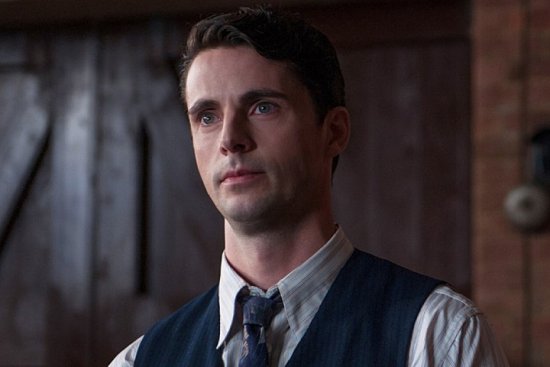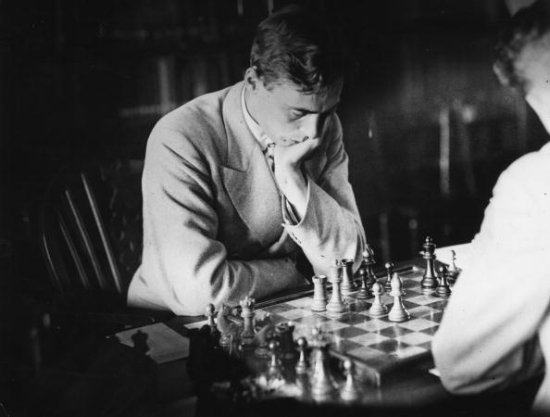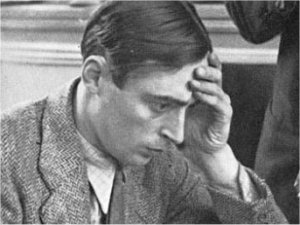The Imitation Game: The real Hugh Alexander
The Imitation Game is a movie based on the biography Alan Turing – The Enigma by Andrew Hodges. Alan Turing was a British mathematician who played an instrumental role in breaking the code of the German army during the Second World War, wrote the first computer chess program, and according to Wikipedia “is widely considered to be the father of theoretical computer science and artificial intelligence”. Though often historically inaccurate the film bagged nominations in eight categories for the 87th Academy Awards, also known as the Oscars.

Benedict Cumberbatch as Alan Turing
Alan Turing (Benedict Cumberbatch) was recruited by the British Secret services to break the Enigma code and led a team of fellow mathematicians at the Government Communication Headquarters (GCHQ) at Bletchley Park, which included Joane Clarke (Keira Knightley) and Hugh Alexander.

Keira Knightley as Joan Clarke

Matthew Goode as Hugh Alexander
Matthew Goode as Hugh Alexander plays one of the most important supporting roles in the movie. Alexander is introduced as a suave mathematician and a chess player of excellence. He is portrayed as a vital element in the functioning of Turing’s team of cryptanalysts, taking care of administrative matters and - though often at odds with the socially clumsy Turing – helping him to design the code-breaking machine that is said to have shortened the Second World War by years. The real-life model for the role of Hugh Alexander in the film was C.H.O’D. Alexander.

Conel Hugh O’Donel Alexander
Irish born Alexander was an alumnus of King’s College, Cambridge, where he showed a prodigious talent for mathematics and chess. In 1931, when undergoing the demanding exams of the Mathematical Tripos, the mathematics course of Cambridge University, which he finished with a first, he was also playing first board for the University’s chess team. Alexander took up teaching as his profession in 1932 as this allowed him to pursue his love for chess.
Alexander was one of the best British players at that time and in 1936 he took part in the Nottingham tournament, in which Mihail Botvinnik and José Raul Capablanca shared first place with 10.0/ 14, ahead of Max Euwe, Reuben Fine, Samuel Reshevsky, Alexander Alekhine, Salo Flohr, and Emanuel Lasker. With 3.5/14 Alexander finished 13th but he managed to beat Flohr and Tartakower.

C.H.O’D. Alexander in action (Photo: Wikipedia)
Alexander won his first British Championship title in 1938 at Brighton and represented England at the Olympiads six times. In the movie - set in England in the 1940s – Alexander claims to have won the British Chess Championship twice, but the real-life Alexander won his second British title only in 1956 at Blackpool.
In 1939 Alexander played for the British team at the Chess Olympiad in Buenos Aires when Germany invaded Poland and the Second World War began. Alexander and his team mates Stuart Milner-Barry and Harry Golombek – who also worked for British intelligence during the war – did not finish the Olympiad but went immediately back to England.
In early 1940, Hugh was posted at the British code-breaking center at Bletchley Park and helped to build the so-called “bombe”, the machine designed by Turing that helped to decipher the code of the German Enigma. Turing’s pioneering works on artificial intelligence were the ancestors of the device you are using to read this text today. http://en.chessbase.com/post/kasparov-on-alan-turing-and-his-paper-machine.
After the war Alexander continued to decipher messages for British intelligence, and in 1949 he became head of the section for cryptanalysis.
He also played tournament chess again. In the friendly radio-match between Great Britain and the USSR in 1946 Alexander was playing on top board against Mikhail Botvinnik, and in the first of the two games of their mini-match he managed to beat Botvinnik who two years later became World Champion.
Botvinnik came back to win the second game and in the end the USSR convincingly beat the British 14-6, which was still a bit better than the 4.5-15.5 defeat the US-team had suffered about half a year earlier.

Mihail Botvinnik
Though he could take part in this radio-match, Alexander could not participate in tournaments that were held in the Soviet bloc because of his work for British intelligence. But he regularly played at the Hastings Chess Congress held annually at the turn of the year.

C.H.O'D. Alexander played against some of the best Soviet players:
(from left to right) David Bronstein, Paul Keres, Mihail Botvinnik
In Hastings 1938 he had finished first with Estonian Paul Keres, leaving players like Reuben Fine and Salo Flohr behind. In the 1946-47 edition of the tournament, Alexander scored 7.5/9 to finish clear first – one point ahead of Savielly Tartakower. And in the 1953/54 edition he shared first place with Soviet World Championship Challenger (1951) David Bronstein, whom he beat in their individual encounter.
Alexander also made a name for himself as a chess writer. He was a regular chess columnist for The Sunday Times, The Financial Times, The Evening News, and The Spectator. He also wrote several chess books, including a very popular one on the Fischer-Spassky Match in Reykjavik in 1972. His work ‘Alexander on Chess’ is still regarded as a classic textbook for beginning and intermediate chess players.
In his later years, Alexander began to veer towards correspondence chess and in the 70s he played for England in the Correspondence World team finals. When Alexander died at the age of sixty four on 15th February, 1974, several of his games were not yet finished.
C.H.O’D. Alexander was awarded the Order of the British Empire for his outstanding services to his country.
Botvinnik said about him: "... with his urge for overcoming and taming opposition, with his enthusiasm for uncompromising struggle, Alexander pioneered the way for British players to modern, complicated and daring chess; chess players will never forget him.”
Snippets of C.H.O’D. Alexander’s games






























